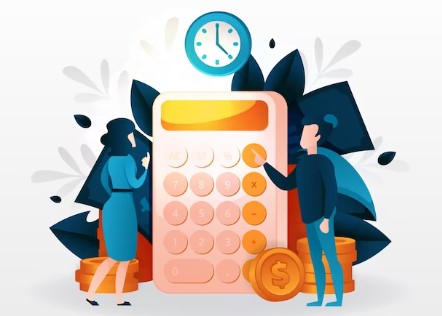“We don’t wake up for less than $10,000 a day.”
– Linda Evangelista
It all started before a class in business school. The guy next to me was playing cards on his laptop. I grew up playing cards, and in the Army, your ability wasn’t determined as much by your actual competence in the field as it was by your ability to hang in a game of Spades. So, I was intrigued. I asked what he was doing.
“Playing poker,” he responded.
“Against the computer?” I asked.
“No, online,” he informed me.
“For fun?”
“No, for real money,” he confirmed.
I was taken aback. And hooked. I wanted in. Ever since the penny ante games at my grandfather’s house, I’d played poker. While I knew that a flush beat a straight, I didn’t know much about strategy. The next time my wife and I did one of our date nights at a Barnes and Noble (stop swooning at how romantic it is; I was in business school, and we were skint), I picked up Doyle Brunson’s Super System 2: A Course in Power Poker and read the Texas Hold ‘Em chapters cover to cover over several cups of coffee.
Then, I really had the fever to play.
There was one problem.
I did mention that I was in business school and we didn’t have any spare cash for me to go plunking down in some online casino to take my chances at winning big in poker. I couldn’t imagine telling my wife that I’d taken $100 and blown it playing cards. I’d probably still be serving penance 12 years later.
So, I did what every broke person with dreams of becoming an international poker sensation did: I played freerolls.
Freerolls are tournaments held by poker sites that don’t require entry fees. They usually hold about 2,000 people, and the winner gets some whopping grand prize, like $10.
I must have played over 100 hours of freerolls before I finally won some money. Let’s say I played 200 hours of freerolls before I won $10. That was a return of $0.05 per hour.
It’s safe to say that during business school, I valued my money much more than my time. I was also younger and a broker!
I think that almost everyone reaches an inflection point in his or her life where time becomes more valuable than at least most amounts of money.
The quick rule of thumb that people use is to divide your salary by the total number of hours that you work in a year, usually 1,920.
This is the wrong approach. Here’s why.
Why Using Salary Replacement for the Value of Your Time is Wrong

Most people assume that a rough replacement value for their time is how much they earn at work. The reason that this is wrong is that you, in almost all circumstances, don’t use that extra time to do more work. Even if you do, chances are pretty good that you’re a salaried worker or retired, so you’re either not going to get paid more for more work or you’re not working in the first place.
Thus, the number has to be lower than what you’d make at work because you’re probably not going to actually go to work with the time that you’ve freed up by trading it for money. Granted, if you’re an hourly worker or you’re an entrepreneur, there is that opportunity to make money with the extra time, but you want to have the choice, not the necessity. It is possible to burn out; as Paula Pant says, it’s impossible to work 168 hours a week.
How do you come up with the discount rate for your hourly wages?
It’s not an exact science by any means. Since Monkey Brain isn’t particularly good at doing complex calculations, it comes down to estimating some numbers and then using your gut from there.
Here you were expecting me to use natural logarithms and z-scores. I know. I disappointed you.
What variables do I consider when thinking about how I value my time for certain tasks?
- How much will it cost me to get someone else to do it? Comparatively speaking, mowing the lawn and cleaning the house (two areas that we outsource) are fairly cheap to have someone come to do on a regular basis. However, I’ve yet to find someone who could make me home-cooked paleo meals that I could microwave for less than it would cost for us to go out to eat (if there’s someone in the Fort Worth area who can do that, PLEASE let me know!). It’s also rare to find a restaurant where we could drive to (time), eat (money), and return (time) for less than it would take for us to cook at home. We used to justify eating out a lot more by saying that we didn’t have to do dishes and it’s hard to cook for two, but the reality was that the numbers just didn’t add up.
- What would I do with that time? I’m not one of those people who tries to hack my life so much that I’m productive every single waking moment of the day, but if I’m going to be giving someone else money to do something that I am capable of doing, then I’d better not sit in front of the television drooling at whatever channel I landed on when channel flipping. Then, I’d be wasting time and money.
- How much do I dislike the task I’m considering paying someone else to do? I loved playing poker, so I didn’t care if I wasn’t making money. I enjoyed it. I’m not so much of a fan of dusting, vacuuming, and folding clothes. It reminds me of Saturday morning inspections at West Point, which aren’t my best memories of that place. If I come down on the “I don’t mind” side of the fence, then I usually wind up doing it. A good example is cooking. I don’t mind grilling, and would probably even go so far as to say that I like doing it. I’m reasonably good, so I can make food that’s almost as good as a restaurant-quality main course. Thus, it will require a very cheap alternative or other, social reasons for me to want to go to a restaurant.
- How much financial wiggle room do I have? If the decision is between paying the electric bill and paying for a maid, this shouldn’t be a question. This variable is really the one that you work so hard to be able to consider. The harder you work and the more intelligently you deal with your finances, the more choices you get to make about outsourcing the things you don’t like to do. No room in the budget means no decisions – you’re doing it all yourself. Have enough saved and no debt – you can outsource more things.
It’s never an exact science for me to figure out how much I’d be willing to pay others to do things that I could do myself. It is a discount to my hourly rate, though, but beyond that admission, sometimes it’s simply a SWAG – a scientific wild *** guess!
Author Profile
- John Davis is a nationally recognized expert on credit reporting, credit scoring, and identity theft. He has written four books about his expertise in the field and has been featured extensively in numerous media outlets such as The Wall Street Journal, The Washington Post, CNN, CBS News, CNBC, Fox Business, and many more. With over 20 years of experience helping consumers understand their credit and identity protection rights, John is passionate about empowering people to take control of their finances. He works with financial institutions to develop consumer-friendly policies that promote financial literacy and responsible borrowing habits.
Latest entries
 Low Income GrantsSeptember 25, 2023How to Get a Free Government Phone: A Step-by-Step Guide
Low Income GrantsSeptember 25, 2023How to Get a Free Government Phone: A Step-by-Step Guide Low Income GrantsSeptember 25, 2023Dental Charities That Help With Dental Costs
Low Income GrantsSeptember 25, 2023Dental Charities That Help With Dental Costs Low Income GrantsSeptember 25, 2023Low-Cost Hearing Aids for Seniors: A Comprehensive Guide
Low Income GrantsSeptember 25, 2023Low-Cost Hearing Aids for Seniors: A Comprehensive Guide Low Income GrantsSeptember 25, 2023Second Chance Apartments that Accept Evictions: A Comprehensive Guide
Low Income GrantsSeptember 25, 2023Second Chance Apartments that Accept Evictions: A Comprehensive Guide

